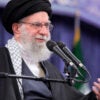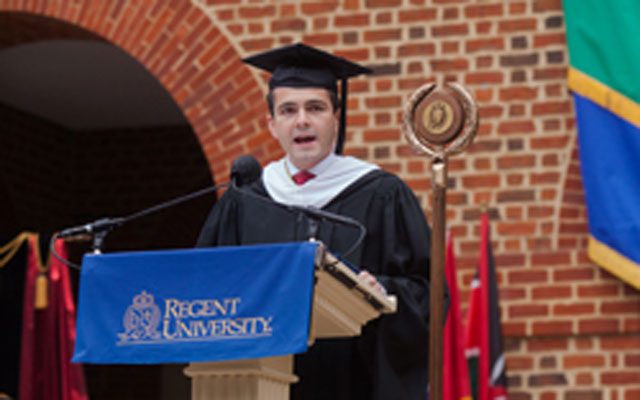Stanford University today appeared to soften its resistance to a pro-marriage event on campus, less than a day after drawing sharp criticism for siding with political correctness against intellectual freedom.
The effort by Stanford administrators and student government leaders to put roadblocks in front of a conference featuring Heritage Foundation scholar Ryan T. Anderson and other proponents of “marriage, family and sexual integrity” seemingly stalled as school officials suddenly said organizers wouldn’t have to cover more than $5,000 in security costs after all.
“Found more funds to subsidize the full cost of the security,” Nanci Howe, associate dean of students, wrote in an e-mail this morning to the Stanford Anscombe Society, organizers of the daylong conference April 5, “Communicating Values: Marriage, Family & the Media.”
The administration previously had said the Anscombe Society would have to pay for security.
“We are delighted that Stanford University has demonstrated its continuing commitment to free speech by providing appropriate security for our event, rather than forcing us to pay for our own safety on campus,” said Judy Romea, co-president of the Anscombe Society.
The Stanford Graduate Student Council (GSC) already had voted to revoke $600 in funding for the event. When Romea called the $5,600 security fee a tax on free speech and publicly demanded that the university lift it, the story began to gain legs.
The student group describes itself as promoting discussion about “the roles of the family, marriage, and sexual integrity in the lives of Stanford students both now and after graduation.” It is not affiliated with any religion or political organization.
“Stanford is trying to quash a view [of marriage] that the president of the United States held only 18 months ago, when he began ‘evolving’ rapidly,” Mike Gonzalez, Heritage’s vice president for communications, wrote yesterday at NRO. Noting Stanford’s “remarkably intolerant” student government and administration, Gonzalez wrote:
“The GSC last week voted to deny funding for an event organized by the Stanford Anscombe Society, a group that believes that sexual relations should be only within marriage, which they define as being between a man and a woman. The university itself told the Anscombe Society it could find the money elsewhere (how generous), after students raised objections that labeled the society’s work ‘hate speech.’ ”
Anderson, 32, has traveled to more than two dozen college campuses — Harvard, Yale and Princeton among them — to make the case against redefining marriage as Heritage’s William E. Simon Fellow and co-author of the book “What Is Marriage?”
Gonzalez, a former reporter and editor at The Wall Street Journal, gently skewered the notion that the thoughtful, mild-mannered Anderson “would create a ‘climate of fear’ that would be hurtful to members of the ‘LGBT community’ attending Stanford.”
Others coming to Anderson’s defense included journalists Rod Dreher (“Ryan T. Anderson’s Dangerous Mind”) and Sonny Bunch (“Don’t Want to Debate? Delegitimize Your Opponent”). In a follow-up today (“Stanford’s Jim Crow Speech Tax”), Dreher writes:
“If Stanford and its student gay-rights thugs get away with this, it will be a shameful defeat for true liberalism, and a victory for gay-rights reactionaries, ideological radicals who insist that Error Has No Rights, and neither do the erroneous. If administrating a university means anything, it means standing up to the forces within the university community that seek to destroy the practices and the habits of mind that make it a civilized, and civilizing, place.”
Stanford also was reminded of the angels of its better nature by academic Michael New, a doctoral student in political science there between 1997 and 2002 – when, he recalls, “conservative ideas could still receive a hearing.” On the other hand, New recommended the poignant recollections of Jennifer S. Bryson, who did not find Stanford to be a “safe” place as a pro-life woman in the 1980s.
Among the first to question whether Stanford was acting within the law was another of Anderson’s Heritage colleagues, legal fellow Andrew Kloster. California law explicitly applies the First Amendment to Stanford, Kloster concludes in a Foundry commentary today.
Although he sometimes has been greeted with suspicion and even hostility for his stand against redefining marriage, as he was at Boston College, Anderson says he normally is met by a polite if not enthusiastic reception – and the events proceed without incident. He does not recall being declared a “safety hazard” before.
This story was produced by The Foundry’s news team. Nothing here should be construed as necessarily reflecting the views of The Heritage Foundation.






























